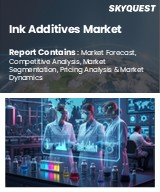
|
시장보고서
상품코드
1750638
세포배양 비타민 시장 규모, 점유율, 동향 분석 보고서 : 제품별, 최종 용도별, 지역별, 부문별 예측(2025-2030년)Cell Culture Vitamins Market Size, Share & Trends Analysis Report By Product, By End-use, By Region, And Segment Forecasts, 2025 - 2030 |
||||||
세포배양 비타민 시장 성장과 동향:
Grand View Research, Inc.의 최신 보고서에 따르면, 세계 세포배양 비타민 시장 규모는 2030년까지 3억 4,300만 달러에 달할 것으로 예상되며, 2025-2030년 연평균 5.6%의 성장률을 기록할 것으로 예상됩니다. 이 시장은 특히 바이오의약품 연구개발 등 다양한 분야에서 세포배양 기술에 대한 의존도가 높아지면서 상당한 성장세를 보이고 있습니다.
세포배양 비타민 시장의 성장을 촉진하는 주요 요인 중 하나는 생명공학 및 제약 분야의 연구개발(R&D) 투자가 크게 증가하고 있다는 점입니다. 정부, 민간 단체, 학술 기관은 혁신적인 의약품 개발, 백신 연구, 유전자 치료 및 세포 치료와 같은 첨단 치료 기술을 지원하기 위해 점점 더 많은 자금을 할당하고 있습니다.
COVID-19 팬데믹은 세포배양 비타민 시장에 큰 영향을 미쳤습니다. 백신과 생물학적 제제에 대한 긴급한 수요로 인해 비타민을 포함한 고품질의 확장 가능한 세포배양 보충제에 대한 수요가 가속화되었습니다. 이러한 보충제는 신속하고 안정적인 생산을 보장하고, 연구를 지원하며, 전 세계 백신 수요를 충족시키는 효율적인 제조 공정을 가능하게 하는 데 매우 중요합니다. 이러한 수요의 급증은 백신 및 치료제 개발에서 세포배양 배지 제제의 중요성을 강조하고 있습니다. 결과적으로, 팬데믹은 세포배양 비타민에 대한 긴급한 수요를 증폭시켰을 뿐만 아니라, 바이오의약품 제조에서 세포배양 비타민의 중요한 역할을 강조하며 시장의 성장 궤도를 강화했습니다.
암, 당뇨병, 자가면역질환과 같은 만성질환의 유병률이 증가함에 따라 보다 정교하고 타겟화된 헬스케어 솔루션에 대한 수요가 크게 증가하고 있습니다. 기존 치료법은 복잡하고 장기적인 질환에 대응할 수 없는 경우가 많기 때문에 보다 개인화되고 효과적인 접근법을 제공하는 혁신적인 생물학적 제제 및 세포 기반 치료법으로의 전환이 진행되고 있습니다. 이러한 첨단 치료법은 세포배양 기술에 크게 의존하고 있으며, 성공을 위해서는 건강하고 기능적인 세포를 유지하는 것이 중요합니다. 이를 위해서는 세포의 성장, 분화 및 면역 반응을 지원하는 비타민이 풍부하게 함유된 정밀하게 제어되고 영양이 풍부한 배양 환경이 필수적입니다.
세포배양 비타민 시장 보고서 하이라이트
- 제품별로는 비타민 B군 부문이 2024년 39.12%로 가장 큰 매출 점유율을 차지했습니다. 이 시장은 바이오의약품 제조 및 연구용 고품질 세포배양 배지에 대한 수요 증가가 주도하고 있습니다.
- 최종 용도별로는 세포배양 배지 제조업체 부문이 2024년 가장 큰 매출 점유율을 차지하며 시장을 주도했습니다. 바이오의약품, 백신, 세포 치료제의 대량 생산에 필수적인 비타민이 풍부한 고급 배지에 대한 바이오 제약 회사 및 연구 센터의 수요가 증가함에 따라 이 시장 부문의 성장에 박차를 가하고 있습니다.
- 북미는 2024년 37.49%로 가장 큰 점유율을 차지했습니다. 북미는 생명공학, 의료 및 의약품 개발을 선도하고 있어 세포배양 비타민에 대한 수요가 높습니다. 이 지역에는 백신, 항체 치료제, 세포 치료제를 개발하는 최고 수준의 연구 센터와 기업이 있으며, 세포를 효율적으로 증식시키기 위해 고품질의 비타민이 풍부한 배양 배지가 필요합니다.
목차
제1장 조사 방법과 범위
제2장 주요 요약
제3장 세포배양 비타민 시장 변수, 동향, 범위
- 시장 계통 전망
- 상부 시장 전망
- 관련/부수 시장 전망
- 시장 역학
- 시장 성장 촉진요인 분석
- 시장 성장 억제요인 분석
- 세포배양 비타민 시장 분석 툴
- Porters 분석
- PESTEL 분석
- COVID-19의 영향 분석
제4장 세포배양 비타민 시장 : 제품 추정·동향 분석
- 제품 부문 대시보드
- 세계의 세포배양 비타민 시장 : 제품 변동 분석
- 세계의 세포배양 비타민 시장 : 규모와 동향 분석(제품별, 2018-2030년)
- 비타민 B군
- 비타민 B군 시장 규모와 예측과 동향 분석(2018-2030년)
- 비타민 A
- 비타민 A 시장 규모와 예측과 동향 분석(2018-2030년)
- 비타민 C
- 비타민 C 시장 규모와 예측과 동향 분석(2018-2030년)
- 기타 비타민
- 기타 비타민 시장 규모와 예측과 동향 분석(2018-2030년)
제5장 세포배양 비타민 시장 : 최종 용도 추정·동향 분석
- 최종 용도 부문 대시보드
- 세계의 세포배양 비타민 시장 : 최종 용도 변동 분석
- 세계의 세포배양 비타민 시장 : 규모와 동향 분석(최종 용도별, 2018-2030년)
- 세포배양 배지 제조업체
- 세포배양 배지 제조업체 시장 규모와 예측과 동향 분석(2018-2030년)
- 제약·바이오테크놀러지 기업
- 제약·바이오테크놀러지 기업 시장 규모와 예측과 동향 분석(2018-2030년)
- CDMO/CMO 및 CRO
- CDMO/CMO 및 CRO 시장 규모와 예측과 동향 분석(2018-2030년)
제6장 세포배양 비타민 시장 : 지역 추정·동향 분석
- 지역별 시장 점유율 분석, 2024년 및 2030년
- 지역 시장 대시보드
- 북미
- 미국
- 캐나다
- 멕시코
- 유럽
- 영국
- 독일
- 프랑스
- 이탈리아
- 스페인
- 노르웨이
- 스웨덴
- 덴마크
- 아시아태평양
- 일본
- 중국
- 인도
- 호주
- 한국
- 태국
- 라틴아메리카
- 브라질
- 아르헨티나
- 중동 및 아프리카
- 남아프리카공화국
- 사우디아라비아
- 아랍에미리트
- 쿠웨이트
제7장 경쟁 구도
- 기업/경쟁 분류
- 전략 매핑
- 기업 시장 상황 분석, 2024년
- 기업 개요/상장 기업
- DSM-Firmenich
- Merck KGaA
- Thermo Fisher Scientific
- FUJIFILM Irvine Scientific
- Lonza
- HiMedia Laboratories
- Danaher
- Sartorius AG
- Corning Inc.
- R&D Systems(Bio-Techne)
Cell Culture Vitamins Market Growth & Trends:
The global cell culture vitamins market size is expected to reach USD 343.0 million by 2030 and is expected to grow at 5.6% CAGR from 2025 to 2030, according to a new report by Grand View Research, Inc. The market has experienced considerable growth as there is an increase in reliance on cell culture technologies across various sectors, particularly in biopharmaceutical research and development
One of the key drivers propelling the growth of the cell culture vitamins market is the significant rise in research and development (R&D) investments across the biotechnology and pharmaceutical sectors. Governments, private organizations, and academic institutions increasingly allocate funds to support innovative drug development, vaccine research, and advanced therapeutic techniques such as gene and cell therapies.
The COVID-19 pandemic has had a profound impact on the cell culture vitamins market. The urgent need for vaccines and biologics accelerated demand for high-quality, scalable cell culture supplements, including vitamins, which are critical in ensuring rapid and consistent production, supporting research, and enabling efficient manufacturing processes to meet global vaccine demand. This surge in demand underscored the importance of cell culture media formulations in vaccine and therapeutic development. Consequently, the pandemic not only amplified the immediate need for cell culture vitamins but also highlighted their essential role in biopharmaceutical manufacturing, thereby reinforcing the market's growth trajectory
The rising prevalence of chronic diseases, such as cancer, diabetes, and autoimmune disorders, has significantly increased the demand for more advanced and targeted healthcare solutions. As traditional treatments often fall short in addressing complex and long-term conditions, there is a growing shift toward innovative biologics and cell-based therapies that offer more personalized and effective approaches. These advanced therapies rely heavily on cell culture technologies, where maintaining healthy and functional cells is critical for success. To achieve this, precisely controlled, nutrient-rich culture environments become essential, particularly those enriched with vitamins that support cell growth, differentiation, and immune response.
Cell Culture Vitamins Market Report Highlights:
- Based on product, the vitamin B complex segment accounted for the largest revenue share of 39.12% in 2024. The market is driven by increasing demand for high-quality cell culture media in biopharmaceutical manufacturing and research applications.
- Based on end use, the cell culture media manufacturers segment dominated the market and accounted for the largest revenue share in 2024. Growing needs from biopharmaceutical firms and research centers for premium, vitamin-rich culture media, essential for mass production of biologics, vaccines, and cell therapies, are fueling this market segment's expansion.
- North America held the largest share of 37.49% in 2024. North America has a high demand for cell culture vitamins because it leads in biotechnology, medicine, and drug development. The region is home to top research centers and companies that create vaccines, antibody treatments, and cell therapies, all of which need high-quality, vitamin-rich culture media to grow cells effectively.
Table of Contents
Chapter 1. Methodology and Scope
- 1.1. Market Segmentation and Scope
- 1.2. Segment Definitions
- 1.2.1. Product
- 1.2.2. End use
- 1.3. Research Methodology
- 1.4. Information Procurement
- 1.5. Information or Data Analysis
- 1.5.1. Data analysis models
- 1.6. Market Formulation & Validation
- 1.7. List of Secondary Sources
- 1.8. List of Primary Sources
- 1.9. Objectives
Chapter 2. Executive Summary
- 2.1. Market Outlook
- 2.2. Segment Outlook
- 2.3. Competitive Insights
Chapter 3. Cell Culture Vitamins Market Variables, Trends, & Scope
- 3.1. Market Lineage Outlook
- 3.1.1. Parent market outlook
- 3.1.2. Related/ancillary market outlook
- 3.2. Market Dynamics
- 3.2.1. Market Drivers Analysis
- 3.2.1.1. Rising demand for biopharmaceuticals
- 3.2.1.2. Growing investment in R&D
- 3.2.2. Market Restraints Analysis
- 3.2.2.1. Stringent regulatory requirements
- 3.2.1. Market Drivers Analysis
- 3.3. Cell Culture Vitamins Market Analysis Tools
- 3.3.1. Porter's Analysis
- 3.3.2. PESTEL Analysis
- 3.3.3. COVID-19 Impact Analysis
Chapter 4. Cell Culture Vitamins Market: Product Estimates & Trend Analysis
- 4.1. Product Segment Dashboard
- 4.2. Global Cell Culture Vitamins Market Product Movement Analysis
- 4.3. Global Cell Culture Vitamins Market Size & Trend Analysis, by Product, 2018 to 2030 (USD Million)
- 4.4. Cell Culture Vitamins
- 4.4.1. Cell Culture Vitamins Market Size & Forecasts and Trend Analyses, 2018 to 2030 (USD Million)
- 4.5. Cell Culture Vitamins
- 4.5.1. Cell Culture Vitamins Market Size & Forecasts and Trend Analyses, 2018 to 2030 (USD Million)
Chapter 5. Cell Culture Vitamins Market: End Use Estimates & Trend Analysis
- 5.1. End Use Segment Dashboard
- 5.2. Global Cell Culture Vitamins Market End Use Movement Analysis
- 5.3. Global Cell Culture Vitamins Market Size & Trend Analysis, by End Use, 2018 to 2030 (USD Million)
- 5.4. Cell Culture Media Manufacturers
- 5.4.1. Cell Culture Media Manufacturers Market Size & Forecasts and Trend Analyses, 2018 to 2030 (USD Million)
- 5.5. Pharmaceutical & Biotechnology Companies
- 5.5.1. Pharmaceutical & Biotechnology Companies Market Size & Forecasts and Trend Analyses, 2018 to 2030 (USD Million)
- 5.6. CDMOs/ CMOs & CROs
- 5.6.1. CDMOs/ CMOs & CROs Market Size & Forecasts and Trend Analyses, 2018 to 2030 (USD Million)
Chapter 6. Cell Culture Vitamins Market: Regional Estimates & Trend Analysis
- 6.1. Regional Market Share Analysis, 2024 & 2030
- 6.2. Regional Market Dashboard
- 6.3. North America
- 6.3.1. U.S.
- 6.3.1.1. Key country dynamics
- 6.3.1.2. Regulatory framework
- 6.3.1.3. Competitive scenario
- 6.3.1.4. U.S. market estimates and forecasts 2018 to 2030 (USD Million)
- 6.3.2. Canada
- 6.3.2.1. Key country dynamics
- 6.3.2.2. Regulatory framework
- 6.3.2.3. Competitive scenario
- 6.3.2.4. Canada market estimates and forecasts 2018 to 2030 (USD Million)
- 6.3.3. Mexico
- 6.3.3.1. Key country dynamics
- 6.3.3.2. Regulatory framework
- 6.3.3.3. Competitive scenario
- 6.3.3.4. Mexico market estimates and forecasts 2018 to 2030 (USD Million)
- 6.3.1. U.S.
- 6.4. Europe
- 6.4.1. UK
- 6.4.1.1. Key country dynamics
- 6.4.1.2. Regulatory framework
- 6.4.1.3. Competitive scenario
- 6.4.1.4. UK market estimates and forecasts 2018 to 2030 (USD Million)
- 6.4.2. Germany
- 6.4.2.1. Key country dynamics
- 6.4.2.2. Regulatory framework
- 6.4.2.3. Competitive scenario
- 6.4.2.4. Germany market estimates and forecasts 2018 to 2030 (USD Million)
- 6.4.3. France
- 6.4.3.1. Key country dynamics
- 6.4.3.2. Regulatory framework
- 6.4.3.3. Competitive scenario
- 6.4.3.4. France market estimates and forecasts 2018 to 2030 (USD Million)
- 6.4.4. Italy
- 6.4.4.1. Key country dynamics
- 6.4.4.2. Regulatory framework
- 6.4.4.3. Competitive scenario
- 6.4.4.4. Italy market estimates and forecasts 2018 to 2030 (USD Million)
- 6.4.5. Spain
- 6.4.5.1. Key country dynamics
- 6.4.5.2. Regulatory framework
- 6.4.5.3. Competitive scenario
- 6.4.5.4. Spain market estimates and forecasts 2018 to 2030 (USD Million)
- 6.4.6. Norway
- 6.4.6.1. Key country dynamics
- 6.4.6.2. Regulatory framework
- 6.4.6.3. Competitive scenario
- 6.4.6.4. Norway market estimates and forecasts 2018 to 2030 (USD Million)
- 6.4.7. Sweden
- 6.4.7.1. Key country dynamics
- 6.4.7.2. Regulatory framework
- 6.4.7.3. Competitive scenario
- 6.4.7.4. Sweden market estimates and forecasts 2018 to 2030 (USD Million)
- 6.4.8. Denmark
- 6.4.8.1. Key country dynamics
- 6.4.8.2. Regulatory framework
- 6.4.8.3. Competitive scenario
- 6.4.8.4. Denmark market estimates and forecasts 2018 to 2030 (USD Million)
- 6.4.1. UK
- 6.5. Asia Pacific
- 6.5.1. Japan
- 6.5.1.1. Key country dynamics
- 6.5.1.2. Regulatory framework
- 6.5.1.3. Competitive scenario
- 6.5.1.4. Japan market estimates and forecasts 2018 to 2030 (USD Million)
- 6.5.2. China
- 6.5.2.1. Key country dynamics
- 6.5.2.2. Regulatory framework
- 6.5.2.3. Competitive scenario
- 6.5.2.4. China market estimates and forecasts 2018 to 2030 (USD Million)
- 6.5.3. India
- 6.5.3.1. Key country dynamics
- 6.5.3.2. Regulatory framework
- 6.5.3.3. Competitive scenario
- 6.5.3.4. India market estimates and forecasts 2018 to 2030 (USD Million)
- 6.5.4. Australia
- 6.5.4.1. Key country dynamics
- 6.5.4.2. Regulatory framework
- 6.5.4.3. Competitive scenario
- 6.5.4.4. Australia market estimates and forecasts 2018 to 2030 (USD Million)
- 6.5.5. South Korea
- 6.5.5.1. Key country dynamics
- 6.5.5.2. Regulatory framework
- 6.5.5.3. Competitive scenario
- 6.5.5.4. South Korea market estimates and forecasts 2018 to 2030 (USD Million)
- 6.5.6. Thailand
- 6.5.6.1. Key country dynamics
- 6.5.6.2. Regulatory framework
- 6.5.6.3. Competitive scenario
- 6.5.6.4. Thailand market estimates and forecasts 2018 to 2030 (USD Million)
- 6.5.1. Japan
- 6.6. Latin America
- 6.6.1. Brazil
- 6.6.1.1. Key country dynamics
- 6.6.1.2. Regulatory framework
- 6.6.1.3. Competitive scenario
- 6.6.1.4. Brazil market estimates and forecasts 2018 to 2030 (USD Million)
- 6.6.2. Argentina
- 6.6.2.1. Key country dynamics
- 6.6.2.2. Regulatory framework
- 6.6.2.3. Competitive scenario
- 6.6.2.4. Argentina market estimates and forecasts 2018 to 2030 (USD Million)
- 6.6.1. Brazil
- 6.7. MEA
- 6.7.1. South Africa
- 6.7.1.1. Key country dynamics
- 6.7.1.2. Regulatory framework
- 6.7.1.3. Competitive scenario
- 6.7.1.4. South Africa market estimates and forecasts 2018 to 2030 (USD Million)
- 6.7.2. Saudi Arabia
- 6.7.2.1. Key country dynamics
- 6.7.2.2. Regulatory framework
- 6.7.2.3. Competitive scenario
- 6.7.2.4. Saudi Arabia market estimates and forecasts 2018 to 2030 (USD Million)
- 6.7.3. UAE
- 6.7.3.1. Key country dynamics
- 6.7.3.2. Regulatory framework
- 6.7.3.3. Competitive scenario
- 6.7.3.4. UAE market estimates and forecasts 2018 to 2030 (USD Million)
- 6.7.4. Kuwait
- 6.7.4.1. Key country dynamics
- 6.7.4.2. Regulatory framework
- 6.7.4.3. Competitive scenario
- 6.7.4.4. Kuwait market estimates and forecasts 2018 to 2030 (USD Million)
- 6.7.1. South Africa
Chapter 7. Competitive Landscape
- 7.1. Company/Competition Categorization
- 7.2. Strategy Mapping
- 7.3. Company Market Position Analysis, 2024
- 7.4. Company Profiles/Listing
- 7.4.1. DSM-Firmenich
- 7.4.1.1. Company overview
- 7.4.1.2. Financial performance
- 7.4.1.3. Product benchmarking
- 7.4.1.4. Strategic initiatives
- 7.4.2. Merck KGaA
- 7.4.2.1. Company overview
- 7.4.2.2. Financial performance
- 7.4.2.3. Product benchmarking
- 7.4.2.4. Strategic initiatives
- 7.4.3. Thermo Fisher Scientific
- 7.4.3.1. Company overview
- 7.4.3.2. Financial performance
- 7.4.3.3. Product benchmarking
- 7.4.3.4. Strategic initiatives
- 7.4.4. FUJIFILM Irvine Scientific
- 7.4.4.1. Company overview
- 7.4.4.2. Financial performance
- 7.4.4.3. Product benchmarking
- 7.4.4.4. Strategic initiatives
- 7.4.5. Lonza
- 7.4.5.1. Company overview
- 7.4.5.2. Financial performance
- 7.4.5.3. Product benchmarking
- 7.4.5.4. Strategic initiatives
- 7.4.6. HiMedia Laboratories
- 7.4.6.1. Company overview
- 7.4.6.2. Financial performance
- 7.4.6.3. Product benchmarking
- 7.4.6.4. Strategic initiatives
- 7.4.7. Danaher
- 7.4.7.1. Company overview
- 7.4.7.2. Financial performance
- 7.4.7.3. Product benchmarking
- 7.4.7.4. Strategic initiatives
- 7.4.8. Sartorius AG
- 7.4.8.1. Company overview
- 7.4.8.2. Financial performance
- 7.4.8.3. Product benchmarking
- 7.4.8.4. Strategic initiatives
- 7.4.9. Corning Inc.
- 7.4.9.1. Company overview
- 7.4.9.2. Financial performance
- 7.4.9.3. Product benchmarking
- 7.4.9.4. Strategic initiatives
- 7.4.10. R&D Systems (Bio-Techne)
- 7.4.10.1. Company overview
- 7.4.10.2. Financial performance
- 7.4.10.3. Product benchmarking
- 7.4.10.4. Strategic initiatives
- 7.4.1. DSM-Firmenich
(주말 및 공휴일 제외)


















